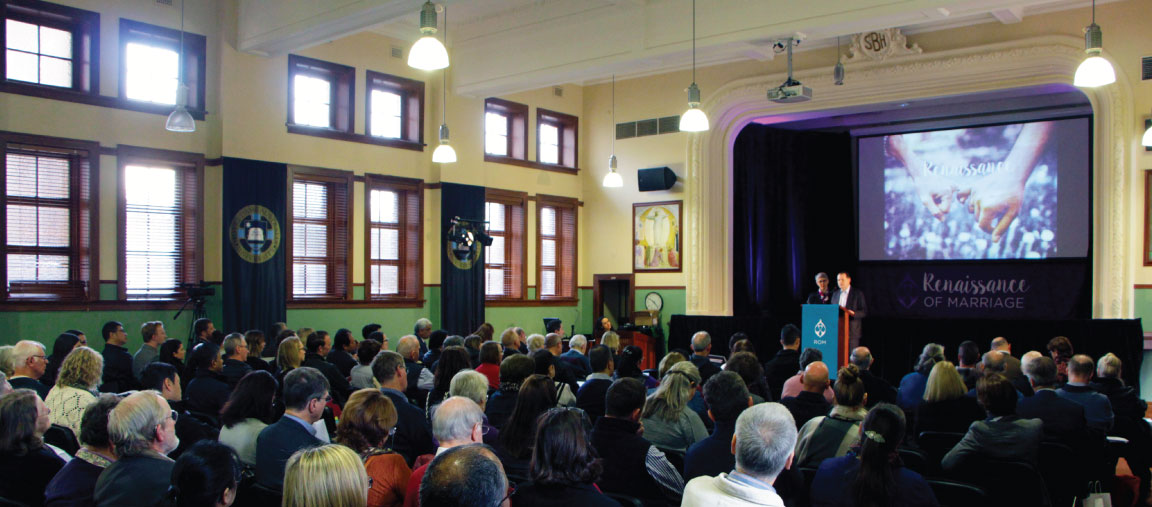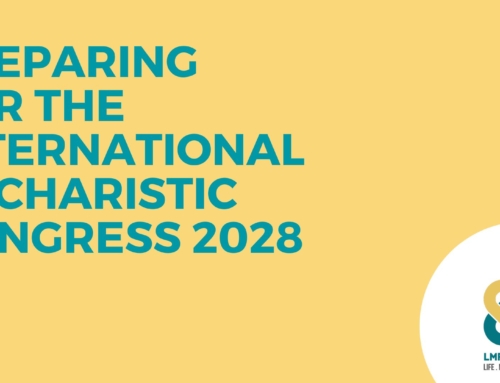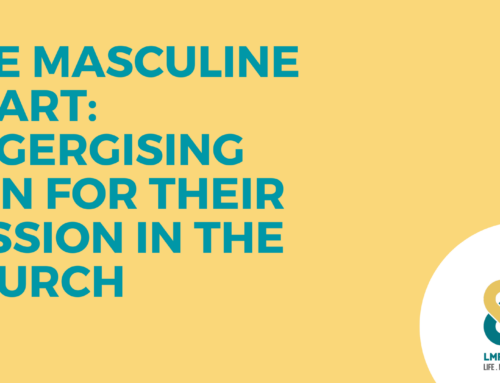Speaking the Truth in Love about Marriage and through Marriage
Archbishop Anthony Fisher
Renaissance of Marriage Conference | University of Notre Dame Australia, Broadway, 26 July 2019
Introduction
I suspect they think of us as B-O-G-A-Ns – bigoted, old-fashioned, god-bothering, anxious nincompoops – and they are determined to change us or else sideline us. To do that they’ll have to change our most sacred social institutions. I’m not talking about traditional leftist activists with long hair and faded jeans. Nor even the academic, media and arts institutions through which they’ve made their ‘long march’.
No, I’m talking about people with financial clout and political bully power – the CEOs of many of our biggest companies – who during the same-sex marriage ‘debate’ decided they should influence not just those connected with their companies but also the wider community and its social institutions and practices. ‘Marriage Equality’ significantly overstated the number of corporations and organisations drafted to their cause;[1] but even more misleading was the use of the names and logos of these corporations simply on the CEOs’ say-so, without approval of boards, let alone shareholders or members.
These included many heavy-hitters of corporate Australia, such as Qantas CEO Alan Joyce and Telstra CEO Andy Penn. According to media reports Joyce’s take home pay is over $11M, Penn’s $4.5M, while the CEOs of the major banks get between $5 and $7M. Penfolds-Wolf Blass chief Michael Clarke scores $18M, Wesfarmers’ Rob Scott $6.5M, Coca Cola Amatil’s Alison Watkins $4.1M; while Ian Narev, former CEO of Comm Bank on $12.3M p.a., has moved to job-hunting platform Seek, where CEO Andrew Bassat rakes in nearly $20M a year.[2] So these guys earn more in a year than many Australians do in their life-time. And now they are using their corporate financial clout to engage in the culture wars and even to redefine marriage.
Meanwhile, on the other side, the bogans include low-paid ‘battlers’, migrants, and the ‘quiet’ majority of people with traditional views on social issues. It might seem a David and Goliath struggle, particularly given the evident weakness today of intermediate institutions such as families, parishes, schools and local communities. But in the end the Church is not merely a human institution competing for market share, nor is it in the business of fighting ideology with ideology.
Jesus responded to ignorance and spin with truth, not more spin; to hurt not with hitting back, but with compassion and balm; to ideology and outrage with graced humanity and humanized divinity. So we pray for His grace, we contemplate with His wisdom, we act with His love, as we renew our evangelical energies and social contributions, especially in the arena of marriage and family life.
Speaking the Truth
My episcopal motto, from the fourth chapter of St Paul’s Letter to the Ephesians, is ‘Speaking the truth in love’. Without reliable teachers, the Apostle says, people will easily be confused, hard-hearted, alienated from God or each other, licentious or greedy. So it is an act of almsgiving, indeed of ‘making love’, to speak truth to them and call them to conversion to God’s likeness. Paul’s thought is: of course we want to speak to people of all sorts, out of love for them, to reverence and learn from them, and to offer them the precious gift we have received.
As in Paul’s day, we live in a pluralist environment and cannot expect everyone to agree with, let alone live, all Christian teachings. As Popes John Paul, Benedict and Francis have said, the Church proposes rather than imposes her ideas: people are free in practice to accept or reject them. That’s why St Peter thought Christians must be ready to give their reasons – authentic, persuasive reasons – for the hope that is in them (cf. 1 Pet 3:15), seeking a hearing even in a world where many ears are deaf to the spiritual, many minds indifferent, many hearts hostile, yet where souls still hunger for more and better.
In his apostolic exhortation Evangelii Gaudium – The Joy of the Gospel – Pope Francis suggested that this evangelising task is a joyful if sometimes arduous one: joyful, because what Christians offer is inexhaustibly fresh, exciting and life-giving, and will bring others happiness and holiness; arduous, we proclaim amidst religious persecution and secularist intolerance, in public spheres corrupted by rejection of the transcendent and all absolutes, and in private spheres disfigured by relativism and cult of self.
Speaking the truth in love: my motto starts with a Greek word that’s very difficult to translate: alhqeuonteV (alitheuontes) is translated into Latin as veritatem facientes and into English as speaking, doing or living the truth, or as one linguist put it, truthing. It suggests truthing is about more than verbalising propositions, important as they are: as St Francis of Assisi famously said, we should preach always and, if needs be, use words. Much communication is, of course, non-verbal. We say all sorts of things by our posture, facial expressions, dress, what St Paul VI called ‘the language of the body’.
We highlight or contradict, support or undermine our verbal messages in these ways. Some actions and even silences speak louder than words. The deeper and truer the communication, the more of us is revealed, sometimes more than we realize or like. Speaking honestly manifests the person: who they are or think they are, what they know or think they know, what matters to them. But lying – asserting as true something we know to be false, intending that the hearer believe it – offers only a counterfeit not just of the truth but of ourselves. It marks the speaker as inauthentic and undermines trust. When people use corporate, political or spiritual power to impose upon others, the effect is similarly destructive.
In Love
This is where the in caritate part of Paul’s motto and mine comes in. Sometimes people oppose truth and love. They might think their hearer incapable of receiving the truth or using it well and so offer a more accommodating message. Here I’m not talking about a prudent silence or packaging: sometimes it’s best to say little or nothing, and always we must choose a register that well communicates what we want to say. But sometimes people think contradicting the truth or thinning it down is more humane, pastoral, merely ‘a white lie’. Or they just think it best that the truth be smothered.
In his encyclical Caritas in Veritate – Charity in Truth – Pope Benedict explored the complex interrelationship of charity and truth and demonstrated the impossibility of serving one while undermining the other. Being inauthentic makes us less loveable. However well-meaning, lying ultimately undermines friendship. This doesn’t mean we should speak harshly or without nuance.
But if we really love, we can’t just keep it to ourselves; we have to sing it out loud like a minstrel’s love-song, shout it from roof-tops like a romantic adolescent, whisper it to each other as spouses do. Real love has to communicate itself, be celebrated, even publicly committed to. Love of God is like that and so is love of people. And because we want the best for those we love, we want them to have meaning, direction, hope, happiness. If faith offers those things, then we can’t keep it to ourselves like a private treasure: when you’ve found the Way, the Truth, and the Life, we have to share Him with those we love…
Why Family Matters
There’s no better place to do this truthful loving and loving truthing than in the family. It’s the microcosm of society. It’s where most of what society does happens first and best: leadership, education, healthcare, formation for citizenship and economy. But it’s also where most of what Church does happens first and best: transmission of faith, education in virtue, formation in self-sacrifice, commitment and sanctity. Since at least the Second Vatican Council, we’ve called the family ‘the domestic church’ or church at home.[3] And we’ve insisted the family is not only an object of evangelization and care, but also the agent of that mission. Family life expresses a creed, a kind of lived homily, tells by words and deeds what members believe is true and matters, and is a site of prayer, worship, catechesis and service.
Recent popes have set the bar high for what the family should be under grace. The Church expects heroism from families because it has known more families from the inside and served more families from the outside than any government, academy or other institution. Rather than a law or policy, ideology or fad, it has a Gospel for the family by which Christ promises grace to make people whole, companioned, fruitful, missionary and saints. In a cynical world that thinks evil inevitable, individuals always self-interested, youth fated to promiscuity and drugs, coupling temporary, and families predictably dysfunctional, the Church preaches a different wisdom. In his famous encyclical, Evangelii Nuntiandi – Evangelization in the Modern World – St Paul VI took forward Vatican II’s thought that the laity should bring this to politics, society, economics and culture, as well as to “human love, the family, education of the young, professional work, and suffering”.[4]
The idea that the family ought to be a place where the Gospel is first lived and then radiated out to the world was followed up by St. John Paul II in his great exhortation, Familiaris Consortio, On the Christian Family Today. He taught that the mission of the family is:
- to form and live with fidelity a communion of persons
- to reflect God’s love for humanity and Christ’s love for his bride the Church
- to serve life by procreation and care for ‘the little ones’
- to share goods, lives, joys and sorrows
- to educate, forbear, pardon, reconcile
- to practice hospitality, especially to the needy
- to serve the community and be a sign of unity and peace
- to be witnesses to truth and evangelizers of the world.[5]
John Paul didn’t think small for the family! Nor does Pope Francis. In Amoris Lætitia, his exhortation On Love in the Family, he describes both Church and society as families of families and says their health depends upon the health of families. The family’s mission is:
- to resist contemporary moves by ideologues and lawmakers to distort marriage and family
- to teach authentic love though thousands of small but real gestures, and to be schools of hoping, dreaming, calling
- to be refuges from society, but also open to outsiders
- to enact and preach a Gospel against the culture of the temporary and disposable
- to be places of encounter where Jesus intrigues and saves.
Pietas
People think piety is only about old ladies telling their beads. But the Christian virtue of pietas is much richer: it is about grateful reverence to all the sources of our being from God down. The Old Testament proposes that we think of our relationship with God as like parent and child or even husband and wife: the People of Israel can be faithful to God like a good bride to her husband, or unfaithful by sinful disobedience.[6]
In the New Testament this is reworked in terms of the intimacy of God-as-Daddy with his children, but also as a marriage between Christ and the Church.[7] But how are we to live a marital life with God?
That’s where the commandments come in: they are the terms of the marriage covenant with God. The first three commandments are about how to live in the family of God; the next seven, about how to live in the family of man. The first three are about venerating the One without whom we wouldn’t be here, the One who said “Let there be light… and life… and love”, by reverencing Him and no other as God, by loving His name and power and never misusing them, by rendering Him true worship and keeping His day holy. The rest of the commandments are about showing reverence to the others without whom we wouldn’t be here, the ones who mediate God’s light and life and love to us.
Here the fourth commandment – ‘Honour thy father and thy mother’ is the hinge between the two tablets of the Law.[8] Adam and Eve, our first father and first mother, were told to join ‘as one flesh’, to ‘be fruitful and multiply’, and to steward creation. Upon their pietas or grateful reverence to God they were to build the family of man. To honour them as our first parents, and all those between them and our own parents, is to honour those also who stand in a kind of parental or familial relationship with us: ancestors, our family, our people, our Church, all our neighbours.
Thus, after the fourth term of the marital covenant with God comes the fifth commandment, which focuses on life: the duty not to kill, of course, but also to guard, reverence, transmit and care for all human life. Modernity rightly emphasizes the for self and for spouse aspects of marriage, but marriage is also and essentially for family: it makes man and woman into husband and wife, then husband and wife into father and mother, turning people related by promises into people related by blood. Through marriage and family the light and life and love we have received are generously transmitted, generations cemented together, and a human experience, idealism and wisdom shared.
The rest of the terms of the covenant follow: marital-familial life whether with God or man obviously requires reverence for family itself (hence: “honour thy parents”); but it also requires reverence for life which is transmitted in the family (“thou shalt not kill”); for sexuality, as the basis of family (“thou shalt not commit adultery”); for property, as securing family life (hence: “thou shalt not steal”); and for communication, for as I’ve already outlined love depends on speaking the truth (hence: “thou shalt not bear false witness”). The ten commandments or terms of the marriage contract between God and humanity are ten expressions of pietas or grateful reverence for our origins and destiny.
What happens when piety declines? It’s obvious that a decline in religious sense will undermine ideals and supports for marriage and family such as indissolubility, commitment, self-sacrifice and generativity: put simply, the less religious a society the less successful it will be at marriage. But in How the West Really Lost God: A New Theory of Secularization, Mary Eberstadt turns this on its head: it’s a decline of marital-family culture that undermines religious culture. Smaller and broken families are less likely to transmit religious faith and practice. Failure to honour parents and children endangers not only the first three commandments (through non-transmission of faith, not learning to honour God and abide by His law, not attending church as a family), but also the willingness to attempt the fourth (by attempting and sustaining a marriage-based family), the fifth (through contraception, abortion, euthanasia) and the sixth (through pre-marital promiscuity and marital infidelity). As individuals struggle to live up to the ideals of family life with God and man, and the commandments that sustain it, society only makes things worse, by for instance confusing people about what marriage and family are, habituating people to non-commitment, rewarding vices and so on. Institutions and practices hostile to faith are increasingly hostile to family and vice versa.
To lose pietas is thus to lose an essential glue for communities and foundation for democracies more crucial, even, than the rule of law. When in his encyclical Evangelium Vitæ, The Gospel of Life, St John Paul II called for a recovery of “the covenant between the generations”,[9] he was proposing pietas not just to shore up marriage and family but as a basis for the renewal of culture and society. Pope Francis has echoed that call.
Marriage at the Heart of Catholic Faith
Today I’ve suggested that a sound understanding of marriage and family goes to the heart of Christian character and morality, and so to our contribution to Church and society. Societies that propose some contrary view of marriage and family, with some contrary ‘virtues’ and ‘ethics’, endanger their own progress and the fulfillment of their members.
In his Theology of the Body St John Paul did so much to open our eyes to the centrality of the nuptial mystery to understanding the human person and community, the ecclesial person and communion, the Holy Family and even the Blessed Trinity. Undermining understanding of persons, sexuality, marriage and family, on this view, undermines people’s ability to receive and transmit Christian faith. Someone who has never experienced sound fatherhood, for instance, will find it hard to relate to a Father-God; someone who rejects the nuptial meaning of the body will more easily fall prey to ideological tropes such as gender fluidity and sexual reassignment; someone who thinks that the state or culture can redefine marriage will reject the idea of a God-given plan or natural order; someone who views marriage as merely a means to self-definition and fulfilment will find the self-sacrifice and commitment necessary for marriage or faith unsustainable. All the analogies will fail.
I will not rehearse the many insights of John Paul’s Theology of the Body today: you can read previous lectures of mine or some of the enormous literature out there. Suffice it to say that reducing marriage to a public commitment to love each other for as long as it lasts, validated by the state and an over-the-top wedding ceremony, misses out on so much of the richness of the nuptial tradition, including mystery and complementarity, call and response, total gift of the self, sacramentality, for life-ness and for-transmission-of-life-ness, sanctification and communion…
Speaking the Truth about and through Marriage
When a man is ordained he’s handed the Gospel book by the bishop who says “Receive the Gospel of Christ whose herald you are. Believe what you read, teach what you believe, and practice what you teach.” In other words, be the real deal. Serve the Church’s mission, tell Christ’s story, in all you do; if you believe the Gospel of Christ, live it. Not half-heartedly, not thinned down to skim milk, but full cream. Let all you do manifest your heart and soul as a Christian.
The great theologian Byron Pirola says that after Baptism the Church offers two sacraments of vocation: ‘Holy Order’ and ‘Holy Disorder’. Holy Disorder is how he experiences marriage and family life! The two states clearly speak to each other: about the gift of self, about being spiritual spouses and parents, about for-love-ness and for-life-ness and for-transmission-of-life-ness, about the challenges and graces of vocation. Of course there can be unholy disorder in both vocations. At a time when bishops and priests are ‘on the nose’ because of past failures, we need the lay faithful to step up and embrace their priestly, prophetic and kingly roles as intentional disciples and missionaries more than ever.
And that means we cannot be satisfied with a few evenings or an on-line course as the whole preparation and support we offer to would-be married couples to live their vocations. Of course much of ordinary Christian family and parish life is precisely formation for this: forming character and aspirations, providing role models, instilling habits of loving well, providing sacramental and community support. But in Amoris Lætitia and elsewhere Pope Francis has suggested that we need something parallel to the RCIA or seminary for marriage.
That means we must provide marital pre-evangelisation long before marriage prep, using various means to encounter and befriend people from an early age, to hear their aspirations for their bodily-sexual-relational life going forward, to ignite in them a hunger for true marriage and family, as for faith and discipleship.
Subsequent marital evangelization seeks conversion to the vocation of marriage and family, and so must contend with:
- counter-Christian understandings of the human person, sexuality, marriage and family
- doubt about the desirability and achievability of long-term commitments, especially after experiences of marital breakdown and family dysfunction
- belief in the easy dissolution of marriage or in children as an optional extra
- inclination long to postpone marriage and in the meantime to live quasi-marriages; and so on.
As people demonstrate some willingness to embrace the Christian understandings about such matters, they will need marital catechesis about the human person, sexuality, marriage and family; examples of and strategies for marital resilience; education in fertility awareness and responsibility; and so on. Faith, prayer and sacrament will be crucial, and techniques and people to support vocational discernment and character formation in the lead-up to any engagement and throughout.
Next comes marital initiation – the wedding – and here we must contend with the romanticisation and trivialisation of weddings, their increasing dissociation from word, sacrament and Christian community, disproportionate spending or attention to less important elements of the ceremonial etc.
After any wedding there must be a good deal of mystagogia or post-wedding reflection, enrichment and support at each stage of marriage thereafter until heaven. On this view, nuptial formation, enrichment and support must come from families, schools and parishes over many years, not just from specialist agencies around wedding time or urgent-need-for-counselling time, and be extended well before and after any wedding. With that in view, CatholicCare Sydney has been meeting with other agencies from around the country, as well as Sydney Catholic Schools, the Archdiocesan Office for Family, Life and Outreach, the University chaplaincies, Sydney Catholic Youth and marriage education providers, with a view to developing proposals for a marriage catechumenate. Asking more of would-be married couples may seem a big ask at a time when church weddings have dropped dramatically, but the need is as obvious today as the divorce rate or the even more alarming never-married rate.
Conclusion
I opened this talk with a rather bleak picture, of Christians on the back foot, Davids against the Goliaths of society, especially in recent times against corporate giants who can so easily co-opt cultural and political power to match their financial grunt. But it wasn’t Goliath who emerged as victor in the original tale. Perhaps the humiliation of the Church in recent years has been precisely to bring her to her knees (where the Church should always be) and to make her more like David than Goliath, relying on the grace of the God-directed slingshot rather than human scale and grandeur. Just as David defeated his gigantic opponent not by beating him at his own game, but by fighting a different game altogether, so too do we respond not with might, but with unwavering example, unstoppable prayer, unsilenced love.
In the face of strong social pressures, we must not lose sight of the main game: encountering and proclaiming Jesus Christ; evangelizing and transmitting our faith in Him; proposing our vision of the human person, relationships, morality and vocation under grace; praying and worshipping God in ways that are worthy and welcoming; reaching out to and caring for those on the margins; promoting, forming and supporting good marital, priestly, and religious vocations. Thanks be to God for each of you bogans, embracing such a mission. Never, ever give up!
[1] http://www.australianmarriageequality.org/open-letter-of-support/ Some of these companies are subsidiaries of others listed.
[2] https://www.news.com.au/finance/money/wealth/nationwide-protests-planned-as-backlash-over-exorbitant-ceo-salaries-grows/news-story/8002afd30c2ea8b6eb4e4e3b5ee9d71b; https://www.abc.net.au/news/2018-07-17/ceo-pay-deals-surge-to-highest-level-in-17-years/10000746; https://www.news.com.au/finance/money/wealth/nationwide-protests-planned-as-backlash-over-exorbitant-ceo-salaries-grows/news-story/8002afd30c2ea8b6eb4e4e3b5ee9d71b; https://www1.salary.com/Shantanu-Narayen-Salary-Bonus-Stock-Options-for-ADOBE-INC.html; https://www.afr.com/business/retail/fmcg/treasury-wine-estates-boss-michael-clarkes-18-million-payday-20180816-h141eb; https://www.acsi.org.au/images/stories/ACSIDocuments/generalresearchpublic/CEO-Pay-in-ASX200-Companies-2017.Jul18.pdf. Interestingly, many of the highest paid CEOs did NOT lead their corporations into supporting the Marriage Equality campaign: Don Meij of Domino’s Pizzas, Peter and Stephen Lowy of Westfield, Nicholas Moore of Macquarie Group, Chris Rex of Ramsay Health, Louis Gries of James Hardie, Ron Delia of Amcor, Colin Goldschmidt of Sonic Healthcare, Mark Hooper of Sigma Healthcare, Paul Perreault of CSL, Peter Coleman of Woodside Petroleum, Andrew McKenzie of BHP Billiton, Scott Richards of Mayne Pharma, John Guscic of Webjet, Greg Goodman of Goodman Group…
[3] Vatican Council II, Lumen Gentium 11; cf. Catechism of the Catholic Church 1655-8.
[4] Paul VI, Evangelii Nuntiandi 70, cited in John Paul II, Christifideles laici n23).
[5] St John Paul II, Familiaris Consortio.
[6] Jer chs 2 & 3; 31:31-3; Isa 54:1-5; Hos ch 2; Ezek 14:12-16:63.
[7] Jn 3:29; cf. Mt 9:15; 22:1-14; 25:1-13; Mk 2:19; Lk 5:34-5; 14:7-24; Eph 5:21-33; cf. 2Cor 11:2; Rom ch. 7;. Rev 19:7; 21:2,9-10; 22:2,17 etc.
[8] Ex 20:12; Dt 5:16; Mt 15:4-9; 19:19; Mk 10:19; Lk 18:20; Eph 6:1-2; Rom 1:29-31; 2Tim 3:2.
[9] St John Paul II, Evangelium vitae 94; see Therese Mary Buck, The Covenant between the Generations in the Thought of Karol Wojtyla/Pope John Paul II (Doctoral thesis, Australian Catholic University, 2013)






It was great to have Archbishop Anthony present his vision for the marriage in his Archdiocese. Bring on the marriage catechumenate!